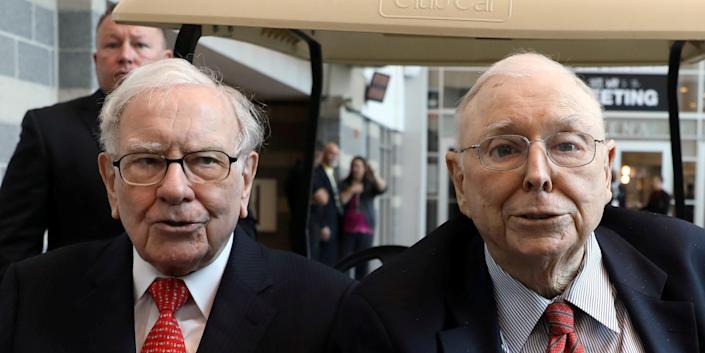
-
Charlie Munger compared Russia’s previous Ukraine invasion to Nazi Germany’s march across Europe.
-
Warren Buffett’s right-hand man saw shades of Adolf Hitler in Russia’s annexation of Crimea in 2014.
-
Buffett warned the conflict could have unpredictable consequences, and wished it would end.
Warren Buffett’s business partner raised concerns about Russia’s invasion of Ukraine in 2014, comparing it to Nazi Germany’s rampage across Europe in World War II.
Charlie Munger, the vice-chairman of Buffett’s Berkshire Hathaway, drew a parallel between Russian President Vladimir Putin’s annexation of Crimea, and German dictator Adolf Hitler’s occupation of neighboring countries.
“Well, of course you worry a little when you see a pattern that reminds you of Hitler,” Munger told CNBC in a 2014 interview.
Munger is famously blunt in his assessments. He has dismissed bitcoin as “rat poison” and cryptocurrency as a tool for criminals, blasted Robinhood as “beneath contempt” for encouraging gambling on stocks and options, and declared the world “would be better off” without special-purpose acquisition companies (SPACs).
Buffett, in the same 2014 interview, warned the Russia-Ukraine situation could have unpredictable consequences, and said he would like to see tensions fade.
“When you get a shift in boundaries, it can set other forces in motion,” the Berkshire CEO warned. He noted that overseas clashes foster uncertainty, and it can be tricky for investors to gauge what matters most as they play out.
“Something has been put in motion that it would be nice to see it come to rest,” he added.
Buffett and Munger avoid investing in Russia as they have faced threats of violence and asset seizure there. Buffett has advised against selling stocks, stockpiling cash, or hoarding either gold or bitcoin during wars.
Bill Gates, Buffett’s close friend and Microsoft’s cofounder, chimed in during the CNBC interview too. He underlined the difficulty of discouraging and punishing aggressive actions by Russia, when many European countries rely on Russian gas.
The billionaire philanthropist acknowledged the risks posed by the seizure of Crimea, but predicted the situation wouldn’t get much worse.
“I don’t think it’s going to get terrible, but it would certainly be high on the list of concerns right now,” he said.
Read the original article on Business Insider




